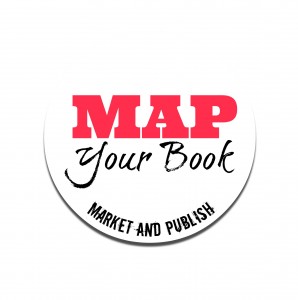If writing is a business (which it is), then a list of your best customers is the most powerful asset you can have.
“Hang on!” you say. “I’m a writer. This isn’t a business.”
Hear me out, because I’ve so been there. The day I quit my full-time, salaried, safe job to become a copywriter, my boss told me, “Good luck on your business!”
“What is she thinking?” I thought to myself, indignant. “I’m going to be a writer!”
Joke was totally on me. And though I hate that she was right … she was right.
If I hadn’t wanted to make a lot of money and support myself working from home, then yeah — I would have been all writer and no business.
But assuming you’re in this for a greater goal (notice how our conversations always go back to goals?), then your book-writing venture has some business element to it. And that’s true even if you’re not in it for the money.
The Most Powerful Way to Connect with Your Readers
There is one exception to your book being a form of business. That’s if you’re writing for an audience of one (yourself), or maybe a handful of your relatives or your friends.
But if your goals extend beyond that, it’s a business and your readers are your customers. Money aside, your goal as an author is to inform, persuade, entertain, teach, move, or share a specific message with those customers/readers.
The best way to do that is by building your own email list.
By email list, I mean a compilation of names and email addresses from people who like your writing and want to know more about you. It gives you a way to connect with them on a regular basis in an environment you control (because remember, social media platforms are great but you’ll never have complete control over what goes on there).
Your email list will consist of four things:
- A list of email addresses
- The first names (or first and last, depending on how you set it up), of the people who give you their email addresses
- Email messages composed by you, intended for your email subscribers
- A single email address, usually called a reflector, that you designate as your message recipient, which then sends a copy of your email to everyone subscribed to your list
There are several email marketing tools that make the process of building your email list a breeze. We’ll talk about hosted email tools in the future.
Why Email Lists for Authors are a Powerful Direct Marketing Tool
Now, let’s say you get cracking and build a list of 5,000 names. What do you do with it? Why did you collect all those names in the first place?
First, consider your list a key factor in your author marketing platform. Not only is your list an excellent way to stay connected to potential readers and buyers, it’s also a proven way to build a long-lasting career for yourself as a writer.
This is partly because an email list gives you direct contact with your readers. It doesn’t matter whether you’re self-published or working with a traditional publisher. Email lists are powerful because they let you play a major role in marketing your book.
Even better, it’s a form of evergreen marketing. Meaning, you can use your author email list over and over to promote your book or any future books you write. Single advertisements, on the other hand, usually cost a bit of cash and fade away after being seen only a handful of times in a publication or online.
Best of all, email lists are quite simple to use once they’re set up. Too many authors think an email list is complicated or too much of a hassle. But it’s not, provided you follow a few easy recommendations.
Here are some further tips on setting up your author email list:
- How to Build Your Author Email List
- 10 Types of Content to Send to Your Author Email List
- How to Write Subject Lines that Get Your Emails Read
- Technical Things to Know About Building Your Author Email List
- What to Look for in a Hosted Email Provider
It’s 100% worth trying. Plus, you can build your author email list even before your book is done. That way, when you go to publish your book, you already have a list of prospective customers who know, like, and trust you. Definitely a win-win!
To your writing success,








